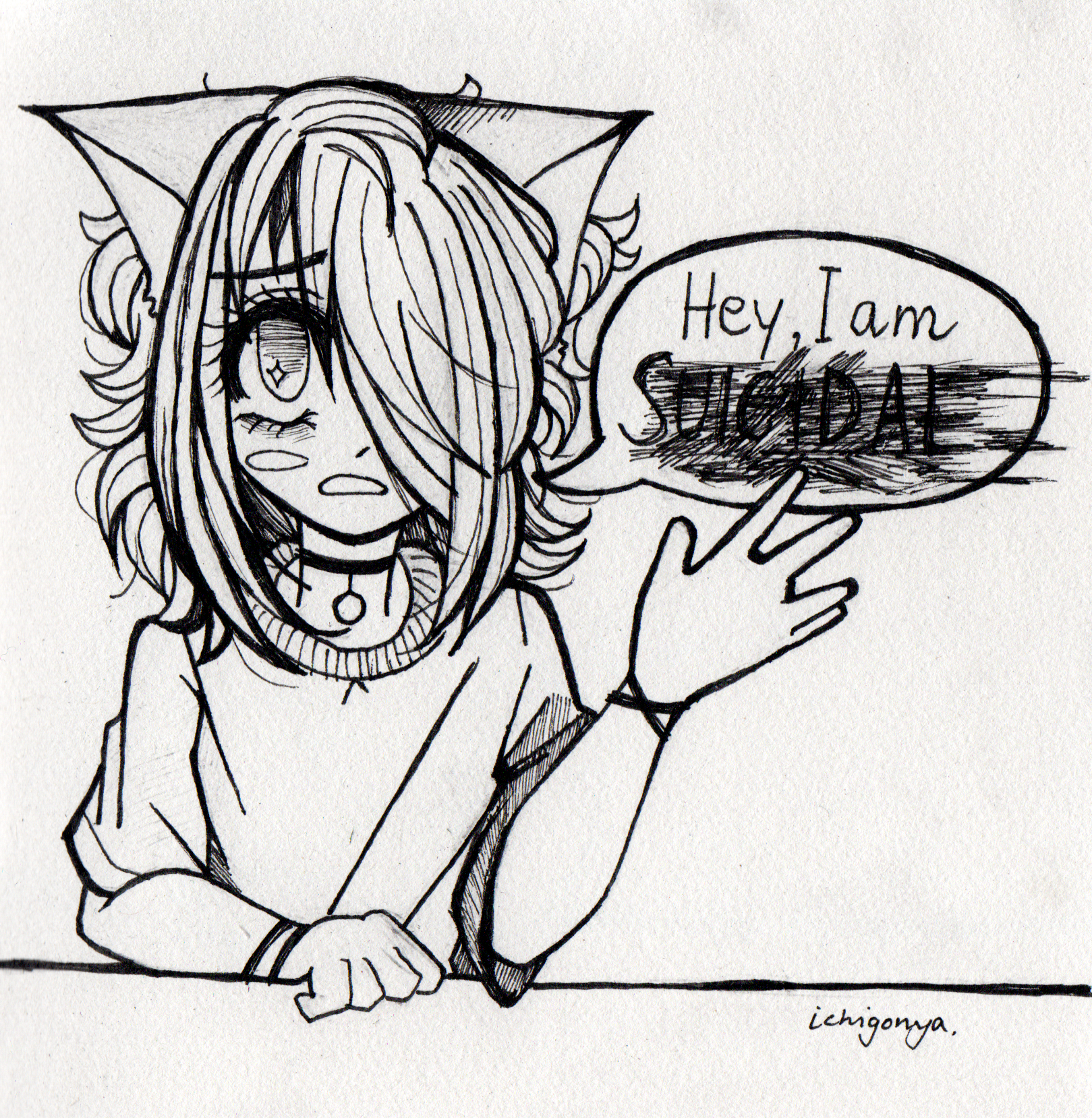
search blog posts by tags etc! ⤴
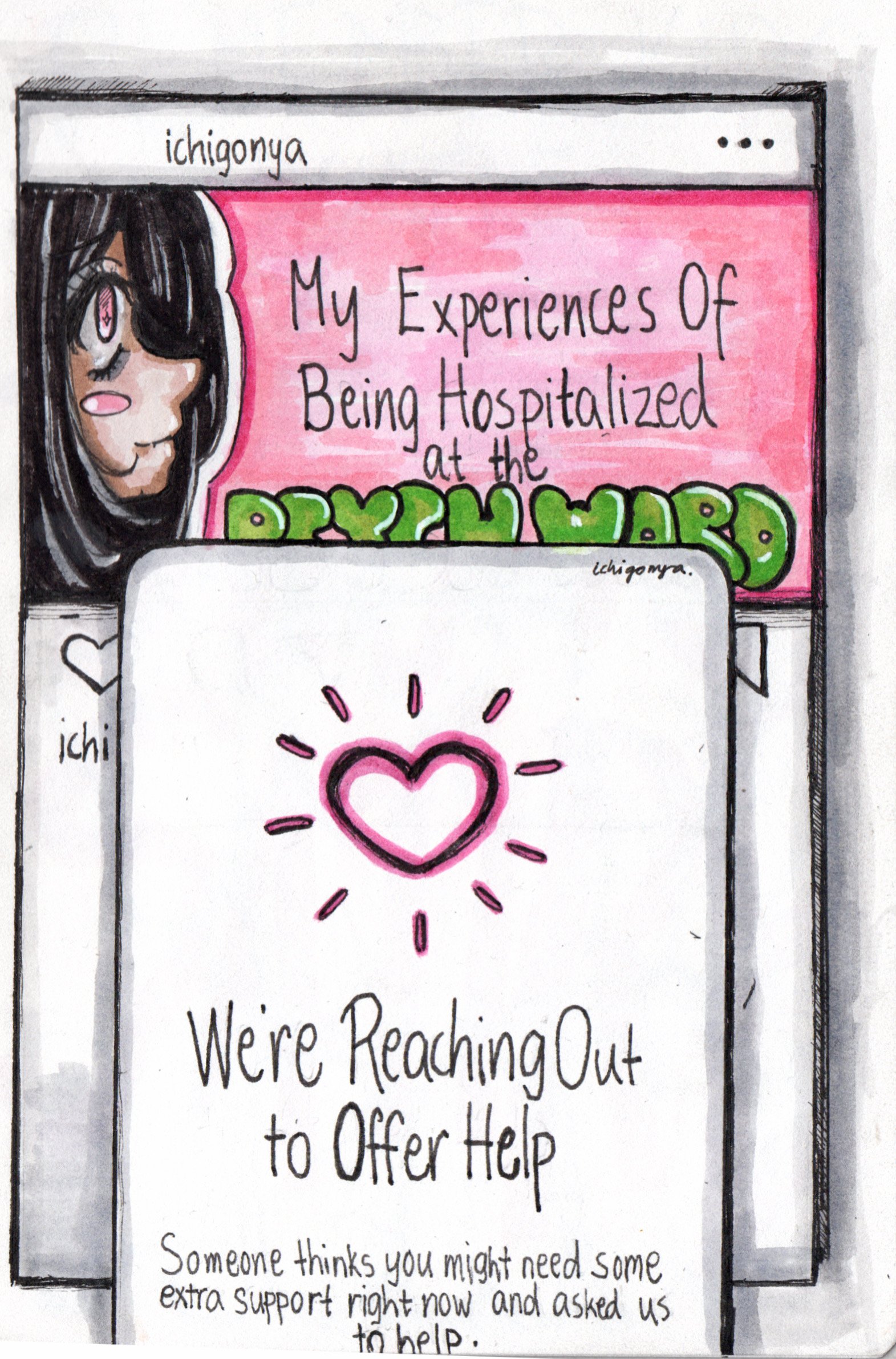
Question: Advocacy
You can’t deny the fact that social media has changed a lot of things in our everyday lives, even if you personally don’t use it all that much. Social media has changed the way we communicate with each other, what we deem as appropriate to share with our loved ones – and total strangers. It is merely a matter of perspective how you see the change in relation to what used to be, to pre-social media times: is it a good or a bad thing to you can vary a lot based on your personal life experiences, such as the generation you were born into. Gen Z’ers tend to see social media in a more positive light than baby boomers, and the reasons for that are pretty self-explanatory.
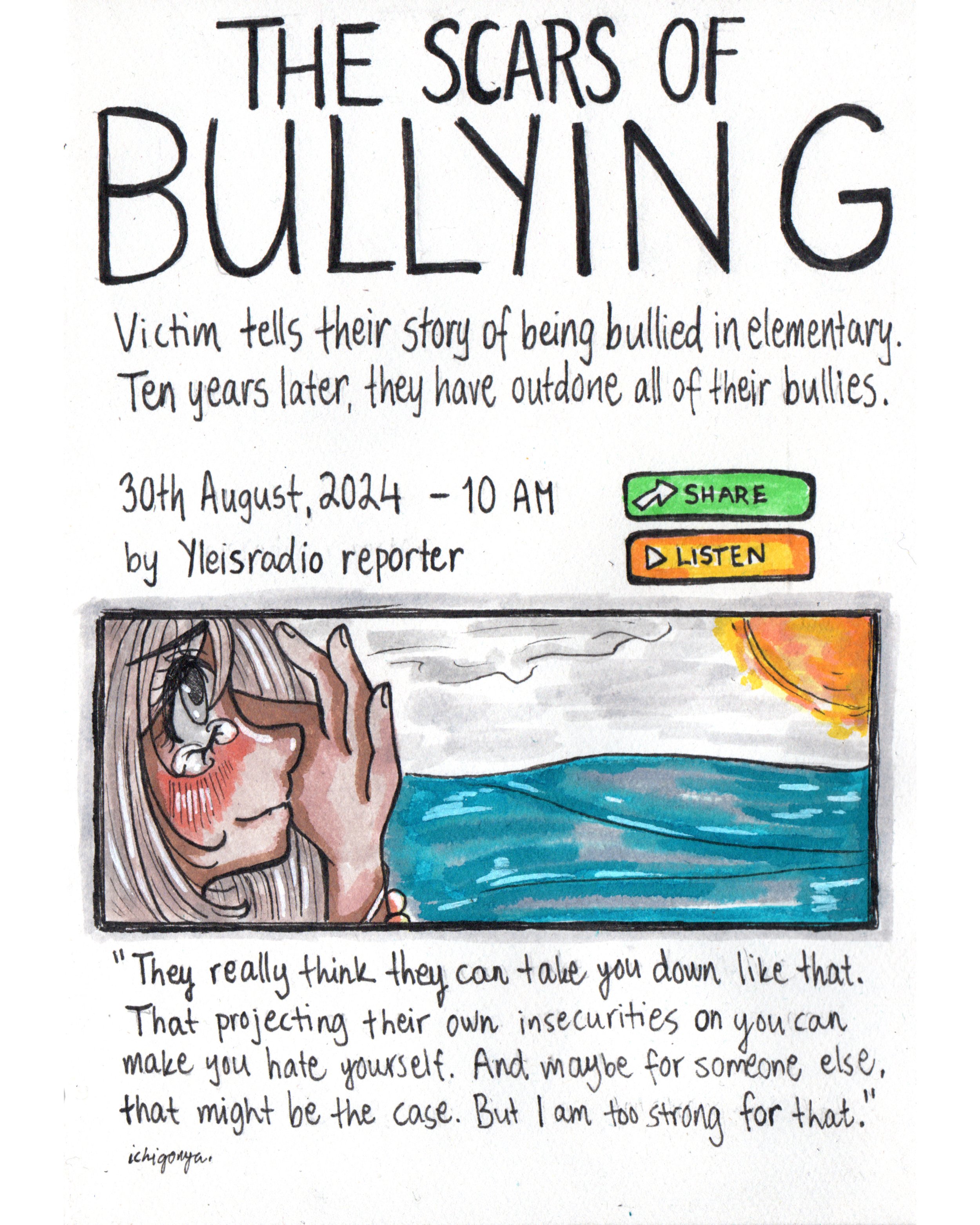
Media: Conditions Apply
Throughout these past few years that I have been working on the project, I’ve reached out to various media outlets in Finland to garner some type of attention from them. So far, only one of those attempts has led to something substantial, and that was in early 2023 when the newspaper of my own county interviewed me. When I reached out to the arts journalist of the paper, I made it a point to let her know that what I was looking for was not a sob story on my abuse and trauma, but a contextual glance at my artistry, what I have turned my childhood trauma into. The journalist was interested in both me as a person and my art; she had checked out my Instagram page and blog articles and was on board with my wish of focusing on the art side of things, promising me to include the few selected scans of my illustrations. I was super excited, this was going to be the starting point of everything!
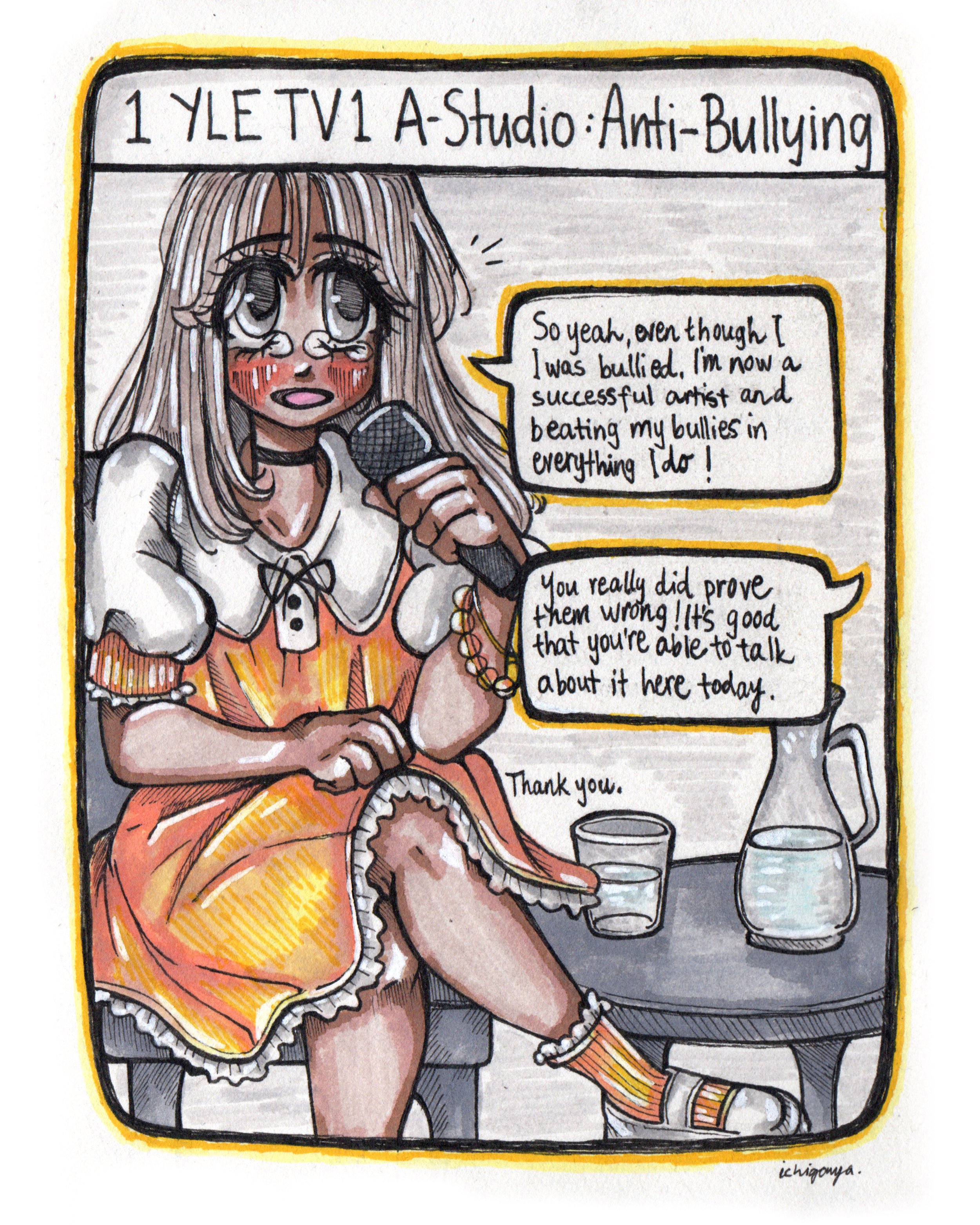
“Well, Look at Me Now!”
When it comes to abuse stories, people typically want to hear the victim to make it out alive and, if possible by any means, to come out on top of the situation, conquering their tormentors. It is a very human thing to expect and look for, because we all do tend to want the best for the person who has been hurt so many times. At its basis, this sentiment is one of compassion and empathy: you want to see the underdog win, to make up for all the terror they’ve been through in the past.
But what happens when an outcome like that is not possible for the victim? What happens to their story?
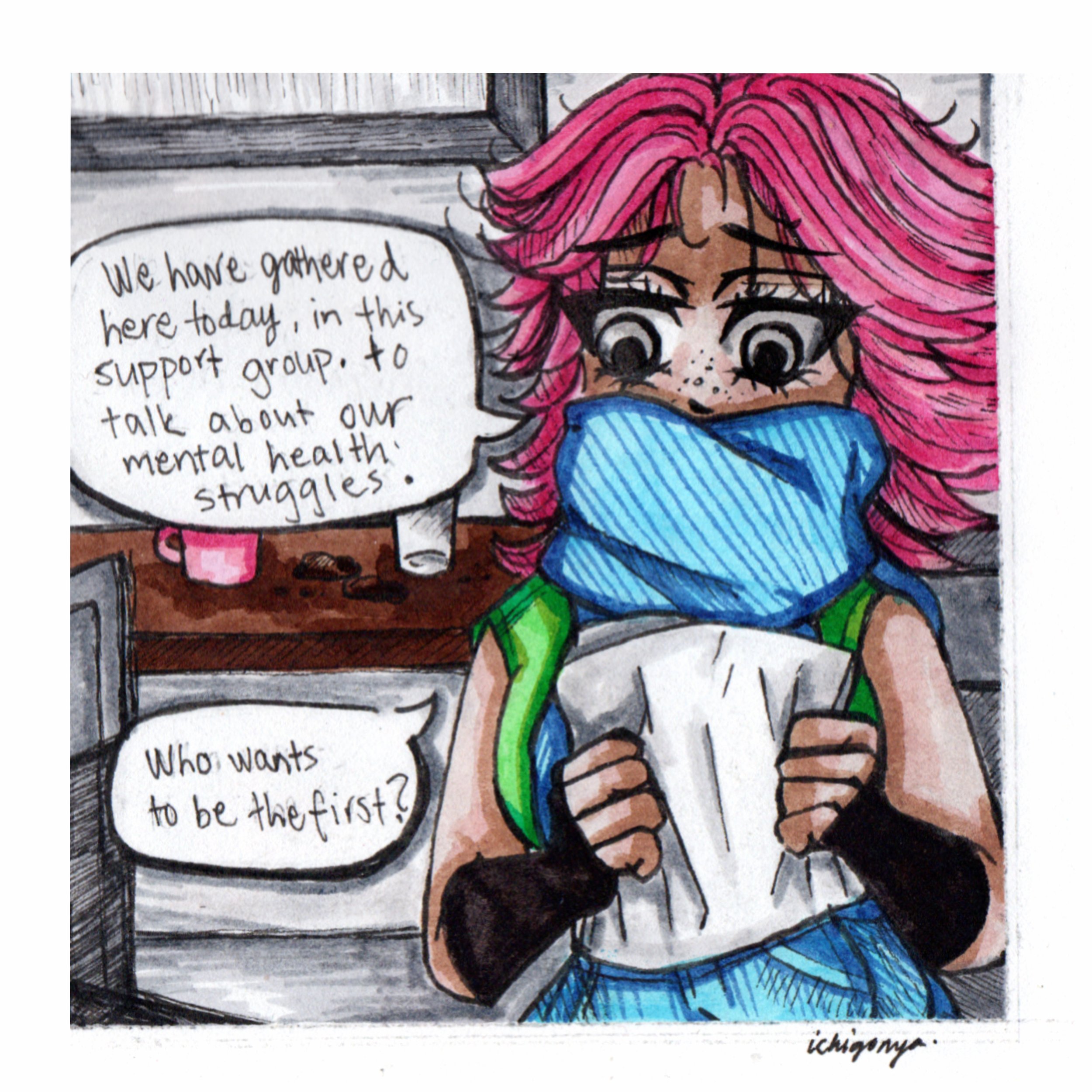
Mental Health Aesthetics
One of the greatest things about the internet is the community factor. No matter how cliched it sounds, I’ve never been part of a community of like-minded individuals – or at the very least I’ve never felt particularly welcomed in these spaces. So as is the case for a lot of people with similar background to mine, I’ve found community in the online world. Born in the first year of the new millennium, some of my earliest memories of being on the internet include chatting with my friends on Windows MSN and playing various games that typically had message forums attached to them. These MMOG’s were my second home as a Kid, as from there I found some resemblance of a group I could feel a type of connection to.
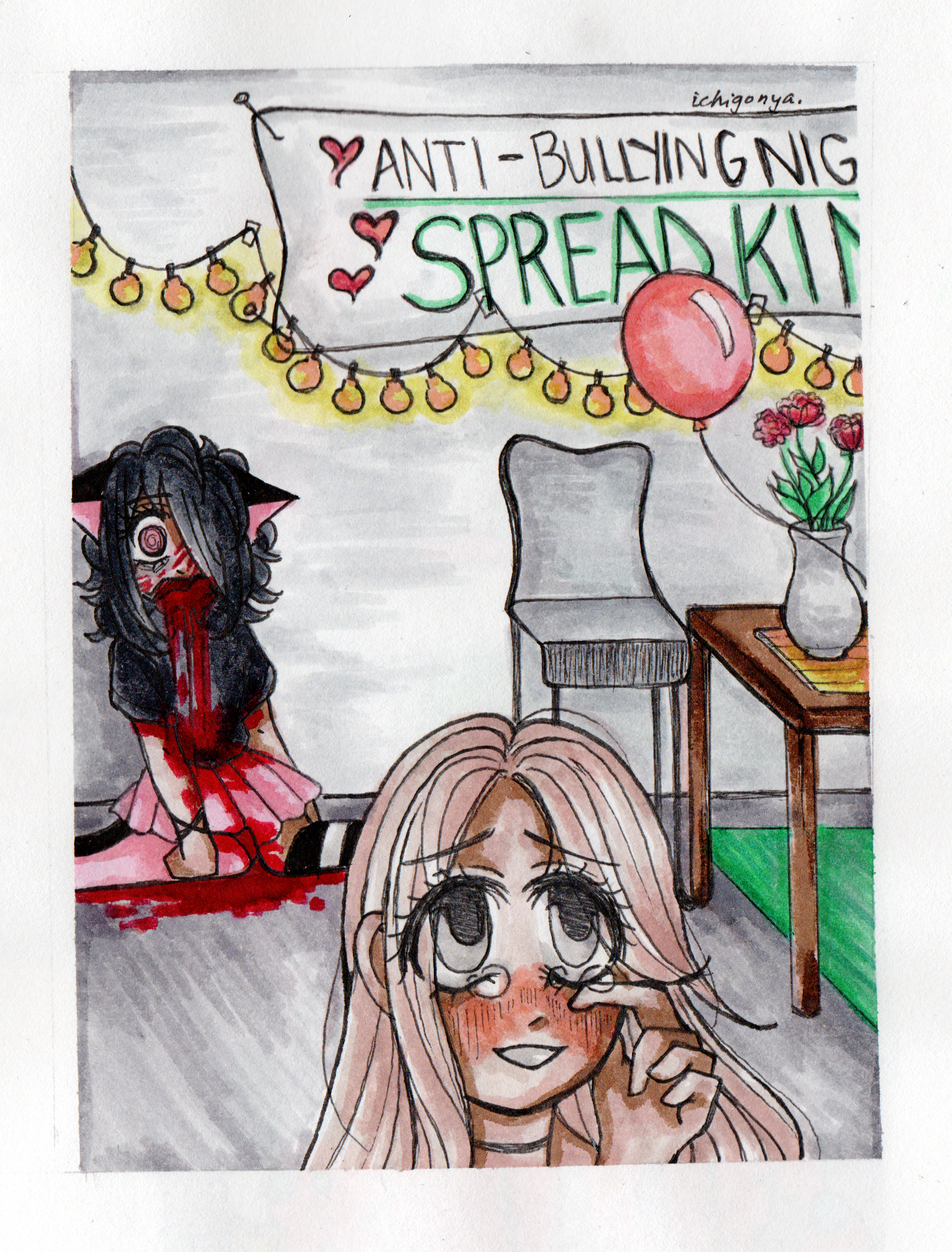
Spread Kindness ♡
I have a complicated relationship with anti-bullying labor. On one hand, I appreciate any effort that is taken to protect kids from being abused and ending up in a situation where I’m in right now; but on the other hand, the vast majority of anti-bullying activism only frustrates me in its insufficiency to actually achieve anything. It relies heavily on campaigns whose sole reason for existing is to offer a counteraction to abuse.

Your Skin, Our Guidelines
It didn’t take long for me to start having problems with the social media platforms I was posting my art on. During the first few months of working on the project, I was struggling immensely with posting and KEEPING my illustrations up on Instagram, because of one specific thing.
Community Guidelines.

WARNING!
Have you ever heard of freak shows? Those exhibitions or circus fairs where people with physical deformities and disabilities were put up on display for “normal” folk to look at and be disgusted, fascinated, repulsed by. Thankfully freak shows have been left in the past, at least for the most part. But even after their prime time, we have continued on to treat disabled and chronically ill people with the same kind of disrespect as that of freak shows. And while the exhibitionists during the 1800’s were often paid for their labor as a “freak of nature”, now in the 21st century, we don’t get those kinds of privileges. So, to some extend, things have gotten worse instead of progressing. But isn’t that the nature of things nowadays in general?
